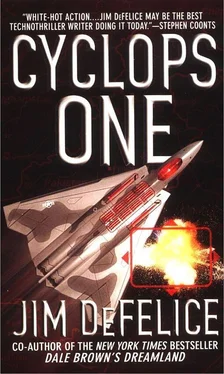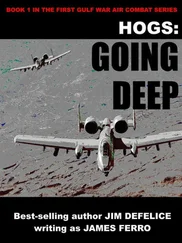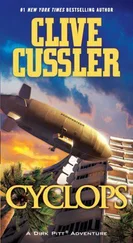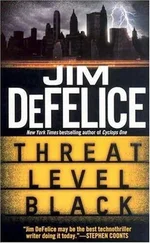He felt the joints at his neck crack, temporarily releasing the tension there. He went back to the desk in the bunker office he had borrowed for his operation, putting on his sweater as well as his jacket. It was an unusually hot summer day outside; that meant it might be approaching fifty, about as balmy as the Russian Far East ever got.
The temperature in the bunker itself never varied more than two degrees from 72° Fahrenheit; nonetheless, Luksha had felt cold the moment he flew over the Urals from Moscow two months before, and from the moment he arrived at the base ten miles from Petropavlovsk-Kamchakiy on Kamchatka he had worn a sweater as well as his jacket. If any of the others in the borrowed facilities at the former naval base thought this eccentric, they didn’t share their comments with the general.
Luksha’s long-range spy planes were confined to the far quarter of the facility, guarded and serviced by a special detachment of men who lived behind two rows of barbed-wire fence. Luksha’s intelligence analysts — mostly language and telemetry experts, though he had an assortment of scientists, photo interpreters, and aeronautical engineers — lived in the compound as well. It was a large family with its own rules and entertainments; for the most part, the men got along without problems.
They had to. Unless one could prove extreme family hardship — and had the proper political connections in Moscow — he knew he would stay behind the barbed wire until the operation was over.
The buzzer on Luksha’s desk signaled that his appointment had arrived. The general pushed the button to acknowledge the call; he had no secretary, and his visitor knew from experience that the fact the intercom buzzed back meant he could enter.
Luksha waited as Laci Chapeav came into the room. The former KGB specialist shifted his eyes nervously about, as if looking for a bugging device; he headed Luksha’s analysis division, and so paranoia was nothing but an occupational hazard. Chapeav’s long frame had been thin, almost gaunt when Luksha met him many years before. Now he had a potbelly and large bags beneath his eyes like drooping golf balls, but his mind remained sharp.
“The Americans have lost their aircraft,” said Chapeav. “It’s the only logical conclusion.”
“So you said two days ago. Where is it?”
Chapeav’s right hand began to shake, a by-product of a neurological disorder, not nervousness. Chapeav did not get nervous, at least not when dealing with his area of expertise.
“The Geofizia data has been reanalyzed,” he told Luksha. “We are confident that the target aircraft crashed in the mountains, roughly where they are looking. All transmissions ceased. It’s the only possible explanation.”
“Then why can’t they find it? Are they really looking, or is it a ruse?”
Unlike many of his colleagues, Luksha did not overestimate the Americans’ capabilities. Nonetheless, he felt it almost unthinkable that they would simply lose one of their most valuable weapons systems in a common air accident.
“There is a coordinate of doubt,” admitted Chapeav. “But the transmissions that the Geofizia picked up and that we have culled from the satellites are consistent with American SAR procedures. If they are merely going through the motions, they are doing an excellent job.”
Luksha nodded. Their high-altitude spy plane — a Myasishchev M-55 dubbed the Geofizia, because its “cover” mission was as an environmental tester — had been a thousand miles from the actual test area, using its long-range sensor array to gather electric transmissions from the Americans as they tested their aircraft. With the exception of a few rather incidental voice communications, the telemetry from the test craft was coded and essentially indecipherable. Nonetheless, it gave experienced analysts considerable information about the types of systems involved and some of the procedures for using them. Coupled with the spy satellites, Luksha knew enough about the American system to know it represented a turning point in airborne warfare.
He had suspected from the first that the accident was actually part of a deception campaign, though if so, he couldn’t explain where they might be thinking of using it. Perhaps it was merely a ruse to pretend that the weapon was not ready and thus hide its actual deployment.
Possible. But why go to the trouble given the secrecy surrounding the project.
They must know they were being spied upon.
Of course they did.
“General?”
Luksha looked up at Chapeav.
“We will need more resources,” said the general.
Bonham cocked his head to the side, listening as Colonel Gorman outlined her latest theory on what had happened to the Cyclops 767. She was obviously tired, and her voice barely carried to where he was sitting in the second row of the control room. The bags beneath her eyes seemed to grow as she spoke.
“It’s incontrovertible that an aircraft was at the Wyoming site,” she said. She nodded to the airman sitting at the computer station near her, who put a screen capture showing a radar plot up on the video projector. She flashed her laser pointer at a small blip in the right corner. “This anomaly is unexplained. We think it was the airplane taking off.”
“Twelve hours after the event?” asked Colonel Howe, who was sitting in the front row.
“Yes.”
Matt Firenze began asking questions about how far the plane would have been able to travel. Gorman turned the questions over to one of the technical people. The Cyclops planes were 300ER versions of the versatile airframe, which gave them a published range of 7,400 miles (with their Pratt & Whitney engines unmodified); the actual range varied according to a large number of factors, starting with how much fuel had been loaded into the plane.
The discussion segued into the difficulties of using the weather-mapping radar to coordinate with the other flight data. Bonham didn’t feel he should object to the technical points — he saw no point in speaking at all — and so waited impatiently for them to move off the technical points to the real problem: where Gorman and her people thought the plane had gone.
The FBI agent, Fisher, had taken a seat at the end of the back row, slouching behind a cup of coffee. Bonham watched him from the corner of his eye; it seemed to him that Fisher was studying him as well.
“What you guys are basically saying is that you have no idea where the plane went, and that it could have gone very far,” said Howe. “But you also don’t have any real evidence that it was at this base.”
“Something was there. We’re positive of that.” Gorman glanced up in Fisher’s direction — he’d been the one who found the plane — as if she were expecting him to say something, but he didn’t.
“I can’t believe that Megan York would have stolen it,” said Howe. “That’s treason. She wouldn’t do that.”
“Maybe she didn’t,” offered Fisher.
Everyone turned around and looked at him, but he didn’t add anything.
“Anyone aboard that plane who objected to what was going on could have used the radio,” said Gorman. “The pilot especially. Flying the big plane through those mountains would have taken two people.”
“Not necessarily,” said Howe. He felt his cheeks burning. Why wasn’t anyone else standing up for Megan?
“At this point we have to work on the assumption that everyone aboard was in on it,” said Gorman.
Howe turned to the FBI agent. “What do you think happened?”
Fisher shrugged, then looked over at Bonham as he spoke. “I don’t know. I’d like to look at some of those lakes in the Canadian Rockies.”
“Which lakes?” asked Howe.
Читать дальше












